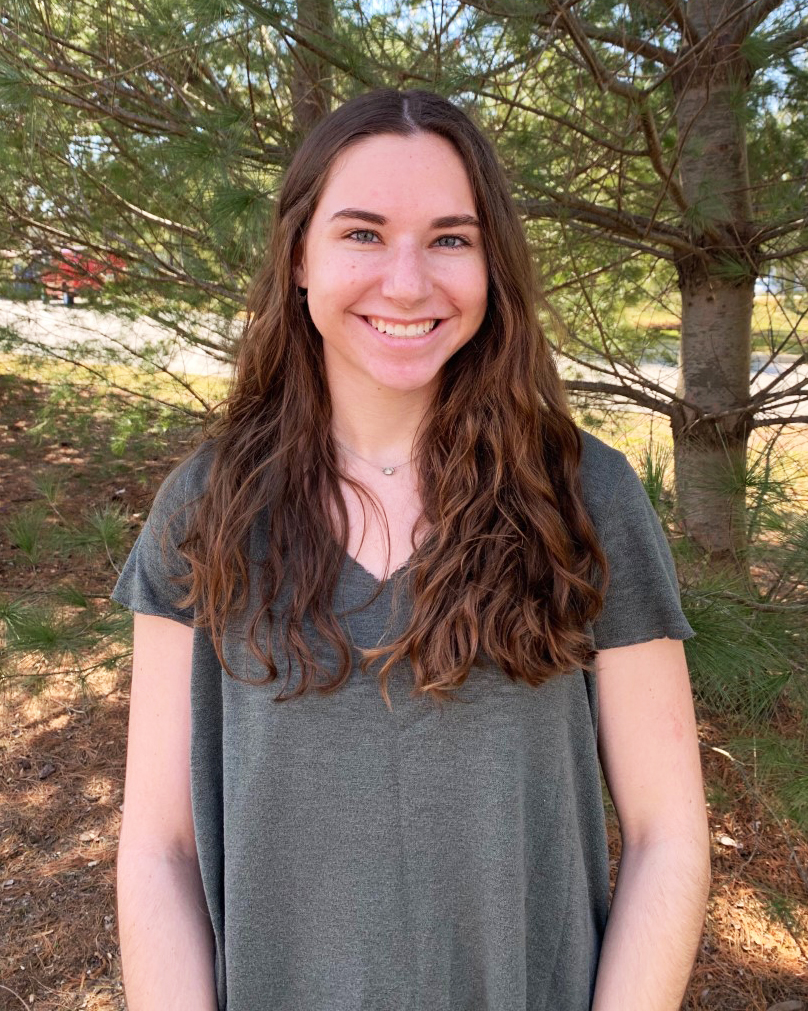
MAJOR
LEARN BY DOING
- Internships with Environmental Engineering Firm
EXTRACURRICULAR ACTIVITIES
- Trap and Skeet Team Captain
- Course Mentor and Tutor Kappa Alpha Omicron Alpha Omicron Pi
SUPPORT FROM DONOR PROGRAM
- Hodson Trust Scholar
- Cater Society of Junior Fellows

Committed to a Healthy Environment
Sammy DiLoreto
Class of 2022 • Harleysville, PennsylvaniaMAJOR
LEARN BY DOING
EXTRACURRICULAR ACTIVITIES
- Trap and Skeet Team Captain
- Course Mentor and Tutor Kappa Alpha Omicron Alpha Omicron Pi
SUPPORT FROM DONOR PROGRAM
- Hodson Trust Scholar
- Cater Society of Junior Fellows
“I found WAC and saw there were so many opportunities for the study of the environment,” she says. “I immediately knew that I would be environmental science major, and I knew that I wanted to pursue the dual-degree program in environmental management at Duke.”
What wasn’t clear to her three years ago was exactly what she wanted to do in the field. Beyond the introductory class to environmental studies, she took classes in quantitative chemical analysis, marine conservation, applied ecology, environmental chemistry, and field methods. She loved every minute spent in the labs, as well as out in the field. When the pandemic derailed her plans to pursue independent research during a summer field course in Ecuador led by Assistant Professor of Environmental Science and Studies Rebecca Fox, Sammy devised a research project she could pursue from home—one that taps into her interest in environmental chemistry.
“While I was doing an at-home lab in my backyard, I noticed a red residue on my shoes. My dad thought it might be iron residue from cars and trucks traveling on the turnpike nearby,” Sammy recalls. “The question became whether vehicle non-exhaust emission causes soil contamination. Professor Fox thought there might be something to it and suggested that I work with Professor Leslie Sherman, who is expert in soil chemistry.”
Sherman says DiLoreto developed her research question completely on her own and was creative in her approach to experimental design. “Based on several Zoom meeting in which we discussed her initial plans, a thorough literature search on her part, and material she learned in Dr. Fox’s field methods course, Sammy came up with a very good design,” says Sherman.
DiLoreto is now back on campus and working in the lab, analyzing the soil samples she collected last fall.
“I have really enjoyed working with Sammy on her Cater research,” notes Sherman, “and I applaud her organization and her commitment to completing an independent research project. Given the tight schedule with the dual-degree program, students pursuing this option do not do an SCE (Senior Capstone Experience) project. So, it is wonderful that Sammy has had this opportunity to conduct research thanks to the Cater Society.”
This fall, Sammy will become the first Washington College student to take advantage of the dual degree program at Duke University’s Nicholas School of the Environment, earning her bachelor of science degree in environmental science and a master’s degree in environmental management in five years. At Duke, she’ll be part of a small program in ecotoxicology and environmental health that will allow her to further explore her interest in environmental chemistry.